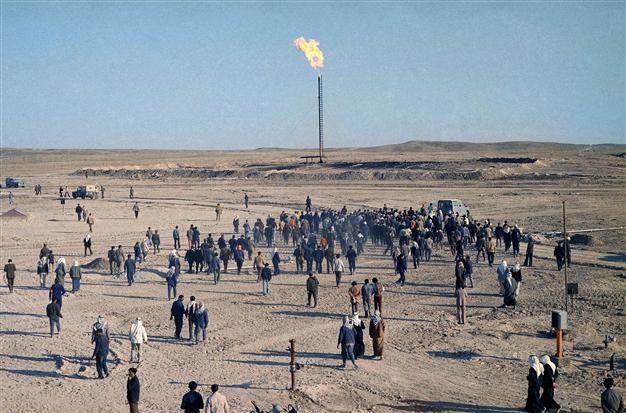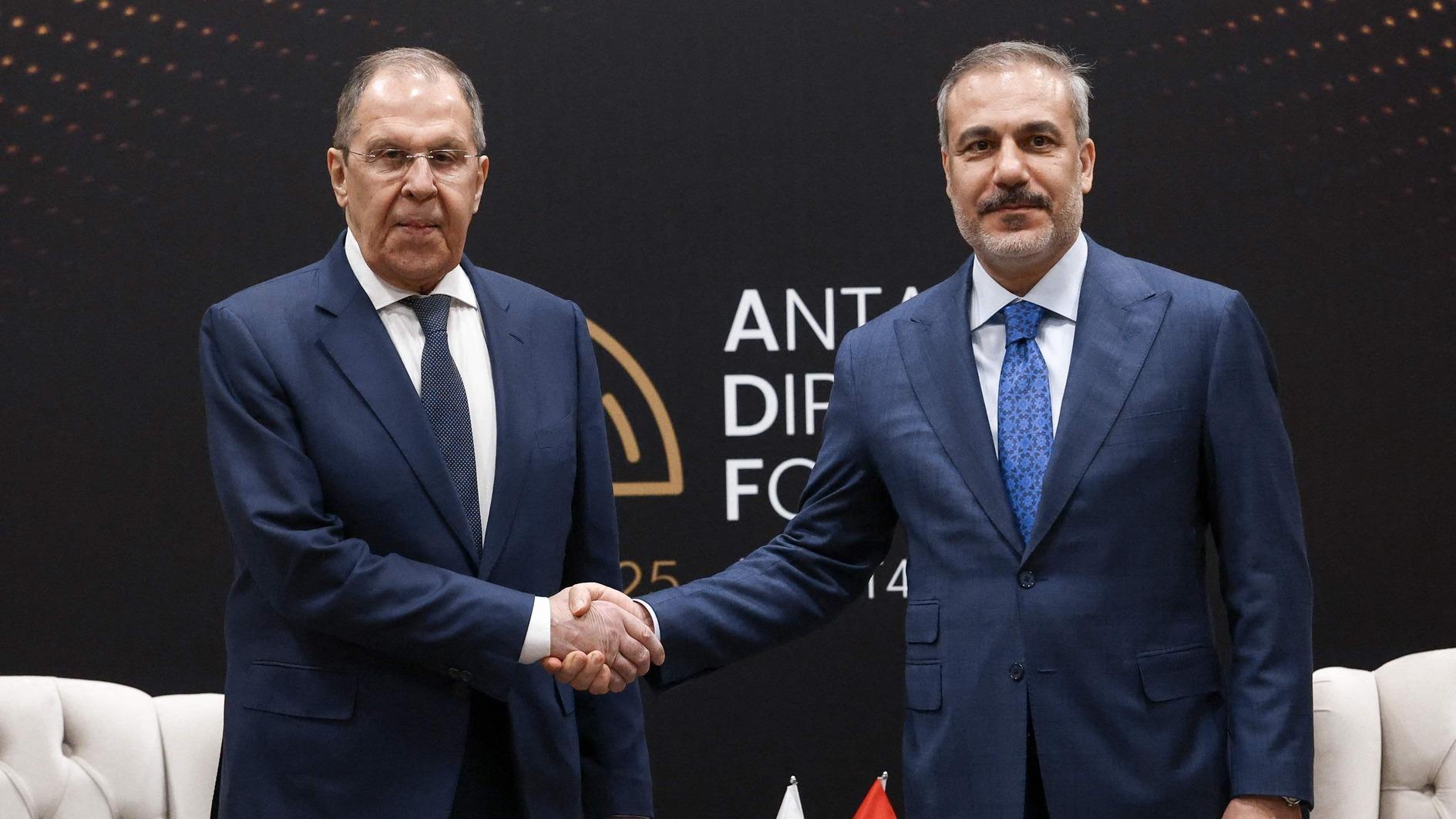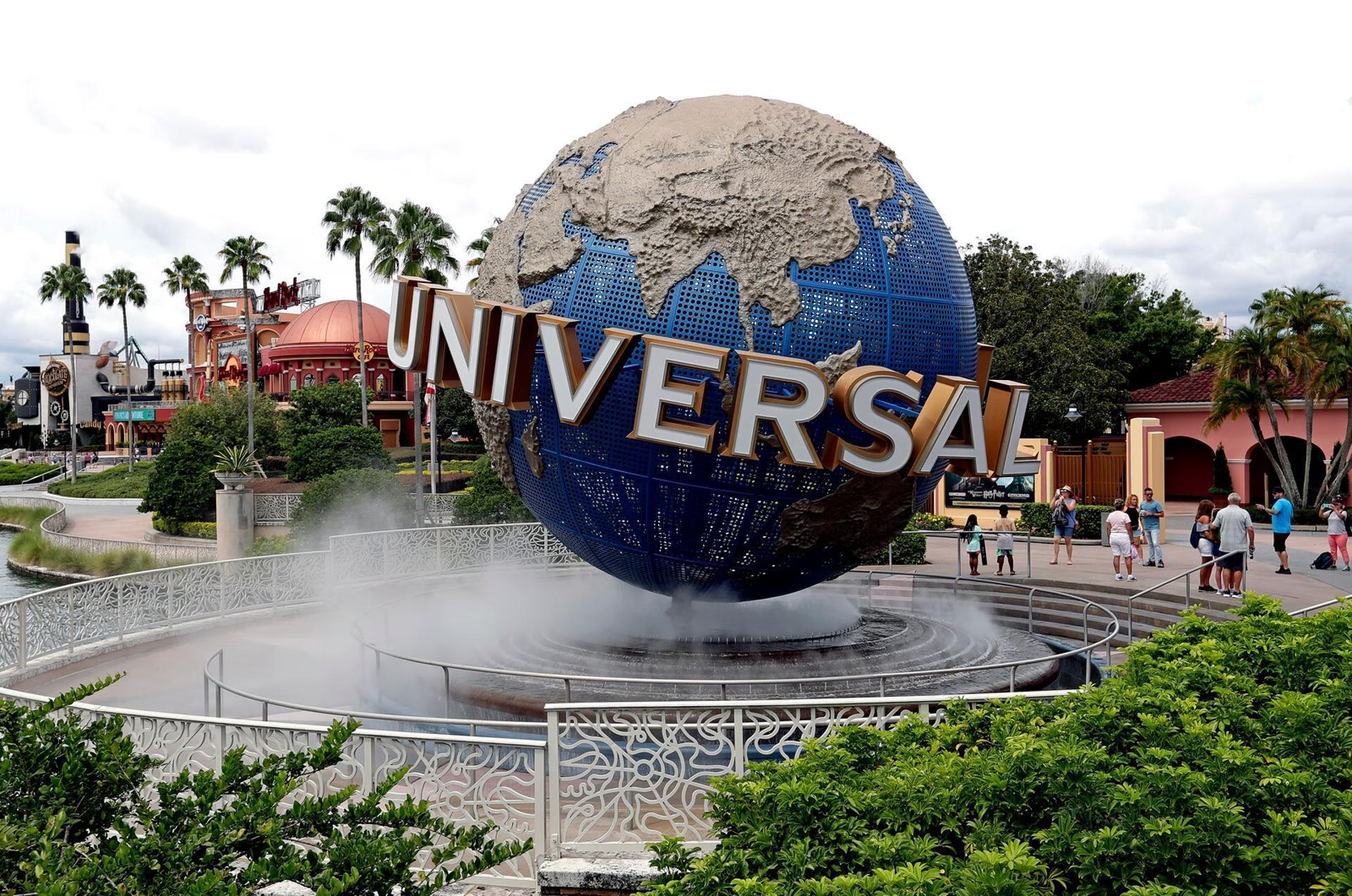Islamic militants seize Syria oil field
BEIRUT - The Associated Press

In this April, 1975 file photo, Syria opens its fourth oil field at Jbeissah, 19 miles west of the Iraq border in April 1975. Islamic militants seized an eastern Syrian oil field near Iraq and inched closer to the Turkish border on Friday, July 4, 2014. AP Photo
Islamic militants seized an eastern Syrian oil field near Iraq and inched closer to the Turkish border on Friday as they try to consolidate their control of an area along the length of the Euphrates river stretching through Syria and Iraq.The Britain-based Syrian Observatory for Human Rights said that fighters from the Islamic State group seized the al-Tanak oil field early Friday. Another group, the activist collective of Deir el-Zour, also reported the seizure.
The field is in the eastern Syrian province of Deir el-Zour, near Iraq, and it followed the Islamic State group's seizure of Syria's largest oil field on Thursday. Both oil fields were taken from other rebel groups.
The extremist Sunni Muslim group now has nearly full control over a corridor from the Syrian provincial capital of Deir el-Zour to the border town of Boukamal. The area neighbors parts of northern and western Iraq that it seized last month, allowing the group to flow freely between the two countries.
Over the past three days, the Islamic State fighters have been pushing strongly northwards up the Euphrates river toward Turkey, shelling a town just 11 miles (18 kilometers) from the border, said the Britain-based Syrian Observatory. A local activist, who uses the name Ahmed al-Ahmed, also confirmed the information.
Their shelling of the rebel-held town of Akhtarin came after they seized another two communities around their nearby stronghold of al-Bab, called Zour Maghar and Badaydiyeh, the Observatory and al-Ahmed said.
The group is led by an ambitious Iraqi militant known as Abu Bakr al-Baghdadi, who this week declared the establishment of an Islamic state, or caliphate, in the lands it has seized in Syria and Iraq.
It proclaimed al-Baghdadi the head of its new self-styled state and demanded that all Muslims pledge allegiance to him.
Syria's uprising began in March 2011 as largely peaceful demonstrations against President Bashar Assad's rule. It escalated into an armed revolt after some opposition supporters took up arms to fight a brutal government crackdown on dissent.
As Islamic militants advanced, Syrian government troops seized control of an industrial area near the northern city of Aleppo, said state-run television. Control of the area allows Syrian troops to more easily blockade eastern parts of Syria's largest city, held by rebel groups.
That then turned into a civil war that has claimed more than 160,000 lives, about a third of them civilians, according to opposition activists. Al-Qaida inspired militants also entered Syria during the upheaval of conflict, seizing territory claimed by armed rebels, and ultimately becoming the Islamic State group.
The conflict has spilled over into Lebanon and Syria, generating a huge wave of refugees.
On Friday, a Syrian warplane carried out three airstrikes in an area about four miles (seven kilometers) within Lebanese territory, killing a 12-year-old boy, a police official said.
The airstrikes occurred near the northeastern town of Arsal. One impacted near a jeep, killing a boy and wounding the rest of his family while on their way to pick cherries. The official spoke on condition of anonymity because he wasn't allowed to speak to the media.
Al-Manar, a television station affiliated with the Lebanese Shiite group Hezbollah, said the strikes targeted gunmen.
Syrian warplanes occasionally strike inside Lebanon, with supporters claiming they target gunmen. Syria's conflict, now in its fourth year, has seeped into Lebanon with Islamic militants carrying out bomb attacks against Shiite and Hezbollah areas.
















